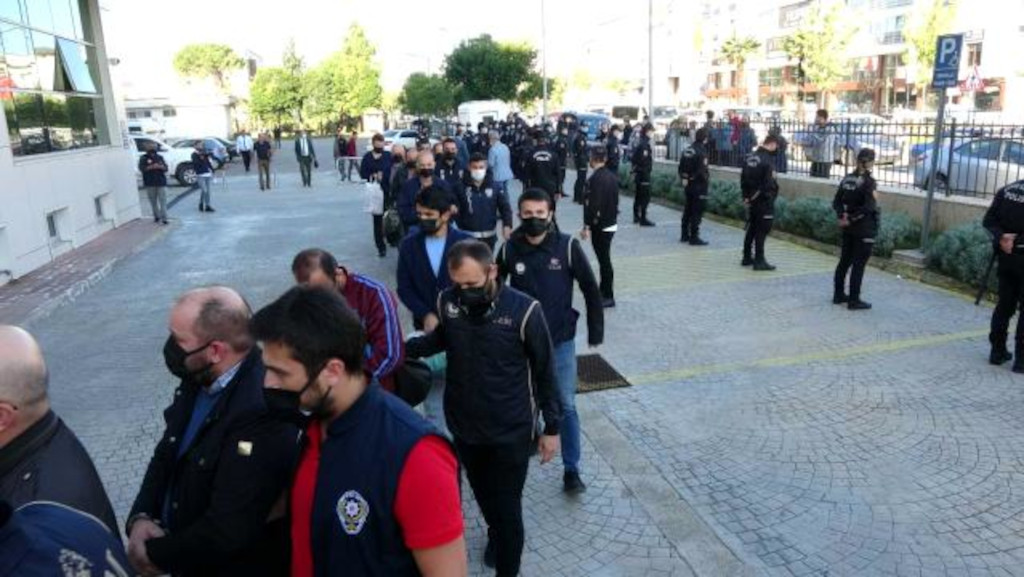The European Court of Human Rights (ECtHR) has once again faulted Turkey over the arrest and pretrial detention of 379 people following a failed coup in Turkey in 2016 due to their alleged links to the faith-based Gülen movement, finding an absence of sufficient grounds for their detention.
The Strasbourg court announced two separate rulings in the cases Kesler and others v. Türkiye, and Sert and others v. Türkiye on Tuesday. The court combined the applications of 172 people in the Kesler case, while the Sert case included the applications of 207 others with similar subject matter.
The applications mainly concerned the arrest and pretrial detention of the applicants in the aftermath of the coup attempt on July 15, 2016 on suspicion of membership in an alleged terrorist organization, referring to the Gülen movement, accused by the Turkish government of masterminding the failed coup and labeled as a terrorist organization.
The movement, inspired by the views of late Turkish Islamic scholar Fethullah Gülen, denies the accusations.
The applicants, based on court documents, were charged with membership in a terrorist organization due to their use of the ByLock messaging app; having accounts at the now-closed Islamic lender Bank Asya; possessing Gülen-linked publications, US one-dollar bills with an “F” serial number (allegedly for “Fethullah”); and/or their employment by and/or membership in institutions and organizations that are all considered by the Turkish government to be linked to the Gülen movement.
ByLock, once widely available online, has been considered a secret tool of communication used by supporters of the Gülen movement since the 2016 coup attempt despite the lack of any evidence that ByLock messages were related to the abortive putsch.
In addition, witness statements indicating ties to the movement, social media posts, attending or holding religious meetings, communication with senior executives of the Gülen movement, facilitating communication between Gülen members, staying in Gülen-linked houses and carrying out various other activities on the alleged orders of the movement were also used by the Turkish courts as criminal evidence against the applicants.
The rights court ruled that Turkey violated Article 5 of the European Convention on Human Rights based on the absence of sufficient grounds for ordering and keeping the applicants in pretrial detention in the cases of all 379 applicants in both cases.
The court ruled that Turkey pay each of 363 of the applicants 5,000 euros in non‑pecuniary damage as well as for costs and expenses. The court did not provide for payment to the remaining 16 applicants.
Late police officer was among the applicants
One of the applicants in the Kesler case, Uğur Uzuntaş, died before the conclusion of his application at the ECtHR.
Uzuntaş, a former police officer, was one of around 130,000 public servants who were summarily removed from their jobs for alleged membership in or relationships with “terrorist organizations” by emergency decree laws subject to neither judicial nor parliamentary scrutiny.
He was arrested on terrorism charges in 2018 due to links to the Gülen movement and died after a stroke in October in 2023 in a prison in Yozgat, in central Turkey, shortly before his release from prison. The court said that the late applicant’s spouse had standing to continue the proceedings in his stead and his wife continued the proceedings related to his application at the ECtHR.
Turkey faulted in 62 post-coup applications
Tuesday’s rulings are one of the many such rulings made by the court over the past years against Turkey due to its violations of the rights of people with alleged links to the Gülen movement who were prosecuted in the aftermath of the coup attempt.
With the latest decision, the ECtHR has found Turkey to have violated the rights of a total of 2,732 people in 62 different applications related to the post-coup rights violations. Turkey has been obliged to pay a total of 12,563,538 euros in non-pecuniary damages and expenses in these cases.
Despite the ECtHR decisions, the Turkish government continues its crackdown on real and alleged followers of the Gülen movement unabated.
In the largest targeting of alleged Gülen followers since the death of the 83-year-old scholar in the US on October 20, Turkish police teams detained 459 people across 66 provinces on terrorism accusations over alleged links to the movement.
Interior Minister Ali Yerlikaya said there would be no “slackening” in the fight against the movement following the death of Gülen, echoing a similar promise made by President Recep Tayyip Erdoğan and other government officials following Gülen’s passing.



